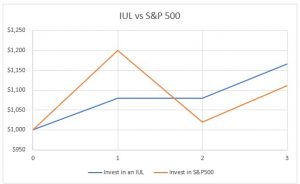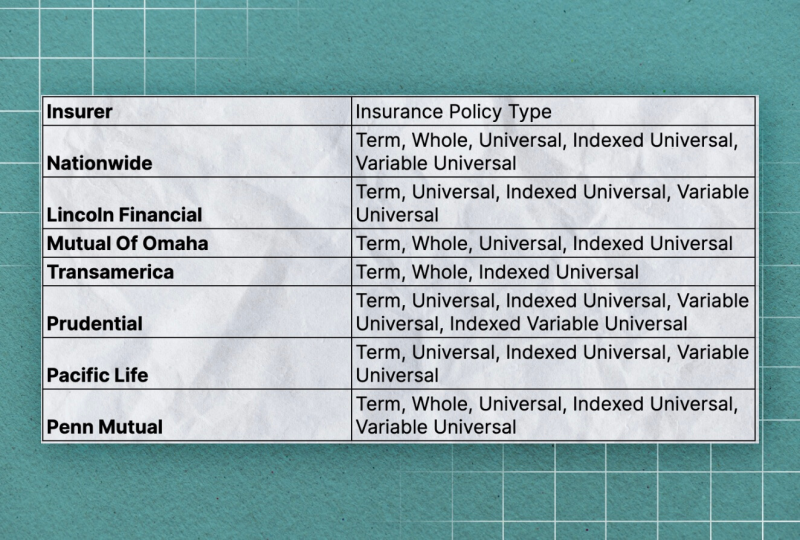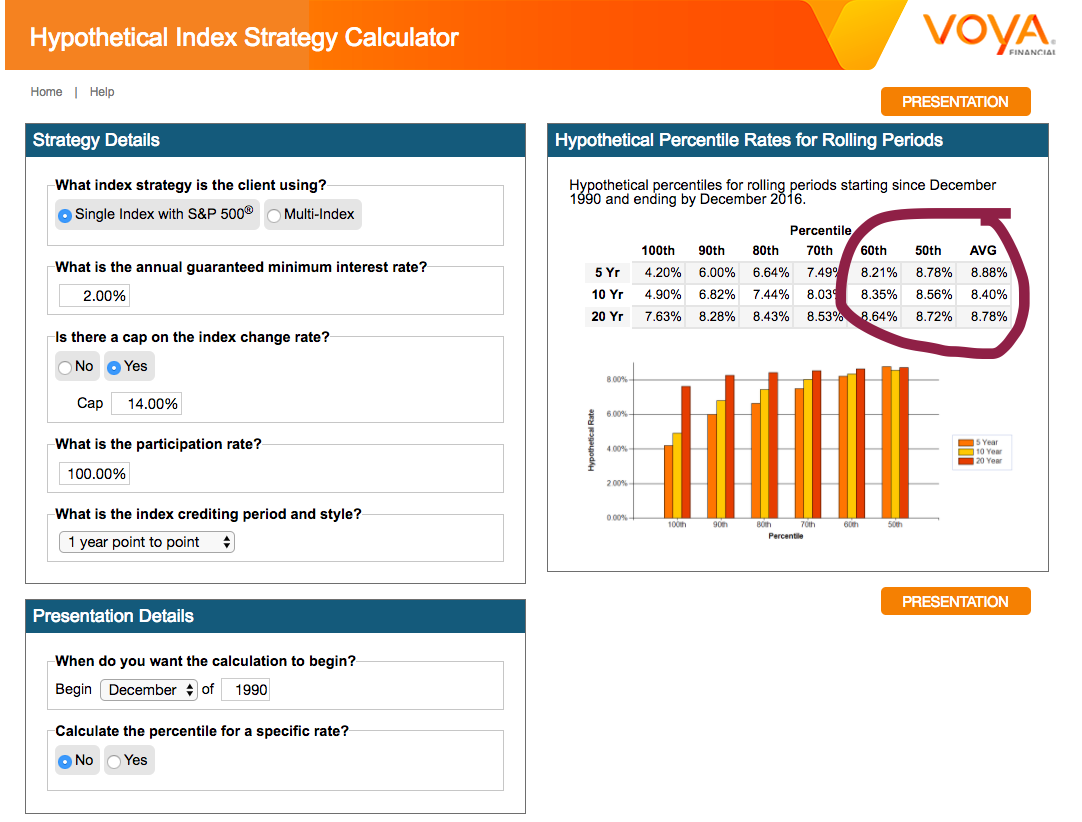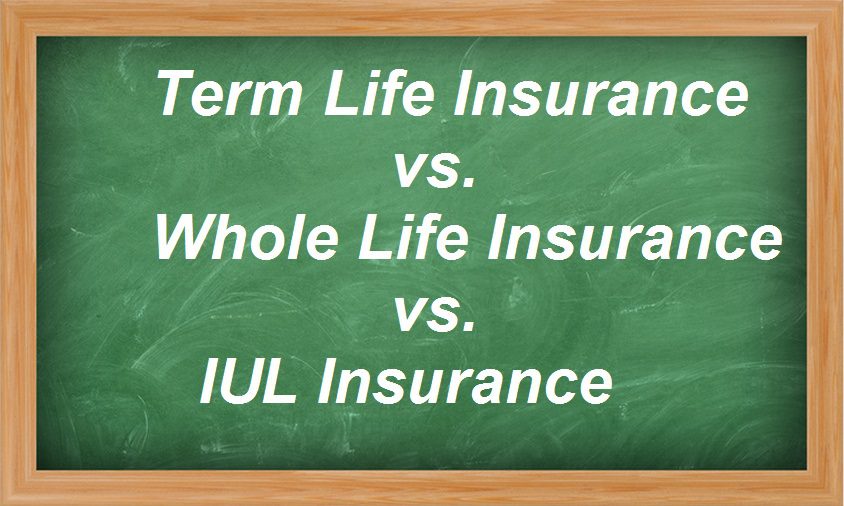All Categories
Featured
Table of Contents
1), frequently in an effort to defeat their group averages. This is a straw male debate, and one IUL folks love to make. Do they contrast the IUL to something like the Vanguard Total Amount Stock Market Fund Admiral Show no tons, an expense proportion (EMERGENCY ROOM) of 5 basis factors, a turnover ratio of 4.3%, and an outstanding tax-efficient record of distributions? No, they compare it to some dreadful actively managed fund with an 8% load, a 2% EMERGENCY ROOM, an 80% turnover ratio, and a horrible record of temporary funding gain circulations.
Mutual funds usually make yearly taxed circulations to fund owners, also when the value of their fund has dropped in value. Shared funds not only require earnings reporting (and the resulting yearly taxes) when the mutual fund is rising in value, however can additionally impose income tax obligations in a year when the fund has decreased in value.
You can tax-manage the fund, harvesting losses and gains in order to minimize taxed distributions to the investors, but that isn't somehow going to transform the reported return of the fund. The possession of shared funds may call for the shared fund proprietor to pay approximated tax obligations (iul insurance meaning).

IULs are very easy to position so that, at the proprietor's death, the recipient is not subject to either revenue or inheritance tax. The same tax decrease methods do not work almost also with common funds. There are countless, often expensive, tax obligation traps connected with the timed purchasing and selling of shared fund shares, traps that do not apply to indexed life Insurance policy.
Opportunities aren't extremely high that you're mosting likely to be subject to the AMT due to your shared fund circulations if you aren't without them. The remainder of this one is half-truths at ideal. For example, while it holds true that there is no revenue tax as a result of your beneficiaries when they acquire the profits of your IUL policy, it is additionally real that there is no earnings tax as a result of your successors when they inherit a shared fund in a taxed account from you.
Whole Life Vs Iul
There are much better means to avoid estate tax problems than getting investments with low returns. Mutual funds might create income taxes of Social Protection benefits.

The growth within the IUL is tax-deferred and might be taken as free of tax income through finances. The plan owner (vs. the common fund supervisor) is in control of his or her reportable earnings, hence allowing them to lower and even remove the tax of their Social Security advantages. This one is fantastic.
Right here's an additional very little problem. It's real if you purchase a common fund for say $10 per share right before the circulation day, and it disperses a $0.50 distribution, you are after that mosting likely to owe taxes (possibly 7-10 cents per share) although that you have not yet had any type of gains.
In the end, it's really concerning the after-tax return, not exactly how much you pay in tax obligations. You're likewise possibly going to have more cash after paying those tax obligations. The record-keeping requirements for possessing shared funds are dramatically extra complicated.
With an IUL, one's records are maintained by the insurance business, copies of yearly statements are sent by mail to the proprietor, and distributions (if any type of) are completed and reported at year end. This one is likewise kind of silly. Naturally you should keep your tax records in situation of an audit.
Equity Indexed Whole Life Policy
Barely a reason to get life insurance policy. Common funds are typically component of a decedent's probated estate.
On top of that, they go through the hold-ups and expenses of probate. The proceeds of the IUL plan, on the various other hand, is constantly a non-probate distribution that passes beyond probate straight to one's named beneficiaries, and is therefore not subject to one's posthumous lenders, unwanted public disclosure, or comparable hold-ups and costs.
Medicaid incompetency and lifetime revenue. An IUL can provide their owners with a stream of earnings for their whole lifetime, no matter of just how lengthy they live.

This is valuable when organizing one's affairs, and transforming properties to income before an assisted living facility confinement. Shared funds can not be converted in a comparable way, and are generally thought about countable Medicaid properties. This is an additional foolish one advocating that inadequate people (you understand, the ones who require Medicaid, a government program for the bad, to pay for their assisted living facility) must make use of IUL rather than shared funds.
Books On Indexed Universal Life
And life insurance policy looks horrible when contrasted rather against a pension. Second, individuals that have money to get IUL above and beyond their pension are going to need to be horrible at handling money in order to ever get Medicaid to pay for their assisted living home prices.
Persistent and terminal disease cyclist. All policies will allow an owner's easy access to cash money from their policy, typically forgoing any abandonment fines when such individuals experience a significant disease, need at-home treatment, or come to be confined to an assisted living facility. Common funds do not supply a similar waiver when contingent deferred sales fees still relate to a mutual fund account whose proprietor needs to market some shares to money the expenses of such a remain.
Accumulation At Interest Option
Yet you reach pay even more for that advantage (cyclist) with an insurance coverage plan. What a large amount! Indexed global life insurance policy gives survivor benefit to the beneficiaries of the IUL owners, and neither the proprietor nor the beneficiary can ever lose money as a result of a down market. Common funds provide no such assurances or death advantages of any kind.
I absolutely do not require one after I reach financial freedom. Do I want one? On average, a purchaser of life insurance policy pays for the real expense of the life insurance advantage, plus the expenses of the plan, plus the profits of the insurance coverage firm.
Can You Cash Out A Universal Life Insurance Policy
I'm not totally sure why Mr. Morais included the entire "you can not shed money" again right here as it was covered rather well in # 1. He just wished to repeat the most effective selling factor for these things I suppose. Once more, you do not lose nominal bucks, but you can shed genuine bucks, in addition to face major opportunity cost due to reduced returns.

An indexed global life insurance policy plan proprietor might trade their plan for an entirely different policy without causing earnings tax obligations. A common fund owner can stagnate funds from one shared fund business to one more without offering his shares at the previous (hence causing a taxed occasion), and repurchasing new shares at the last, commonly based on sales charges at both.
While it is real that you can trade one insurance coverage for one more, the factor that people do this is that the initial one is such a horrible policy that even after getting a new one and undergoing the early, adverse return years, you'll still come out ahead. If they were offered the appropriate policy the very first time, they shouldn't have any type of desire to ever before trade it and experience the early, negative return years once again.
Latest Posts
Iul Illustration Example
Universal Life Rates
Nationwide Yourlife Indexed Ul Accumulator